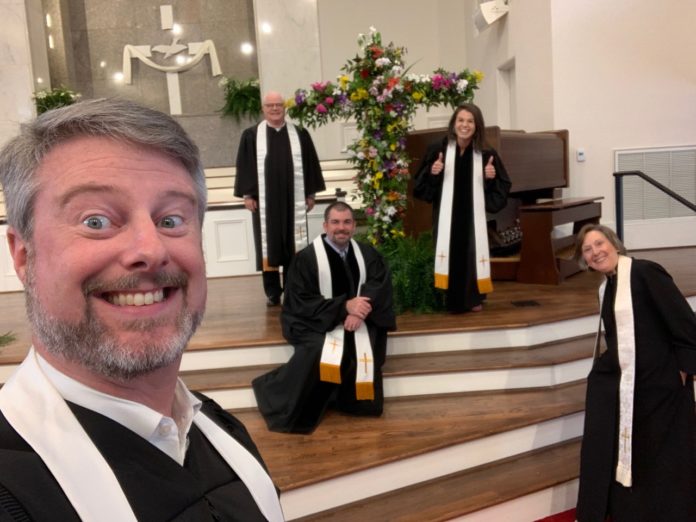
The COVID-19 pandemic has changed the way we live, as well as the way we practice our faith. Alumni from Mercer’s McAfee School of Theology have had to find alternative methods to minister to and support their communities while they can’t be with them in person.
“It’s hard to do ministry when you can’t be physically present with people,” said Matt DuVall, senior pastor of First Baptist Church in Rome, Georgia, and a double-Bear. “It’s much more challenging to do this work virtually, and you add on the ways that people’s lives have been impacted by this situation. We’re all having to rethink what is sustainable and what’s life-giving and helpful without being a burden.”
Worship
The first thing many churches did was transition to remote formats for their worship services. First Baptist in Rome, which has three McAfee alumni on its pastoral staff, already had that infrastructure in place but had to make a few adjustments.
The church has live-streamed its services online for years and had a live local TV broadcast since the 1970s, but staff members shifted to recording services in advance, said DuVall, who earned his undergraduate degree from Mercer in 2001 and his Master of Divinity in 2004.
The church’s five full-time ministers now film the services in the sanctuary, making sure to maintain a safe social distance. Then, the cameraman edits together all the clips of the service, including pre-recorded pieces like readings by lay leaders at home or performances by soloists.
“We’re glad to be able to be together and to record that in our space. It’s been helpful for people to be able to see the sanctuary and connect in that way,” DuVall said.
Many people who are members of other, smaller churches or who don’t have internet access watch the services on TV. The Easter service had 465 live views online across 17 states.
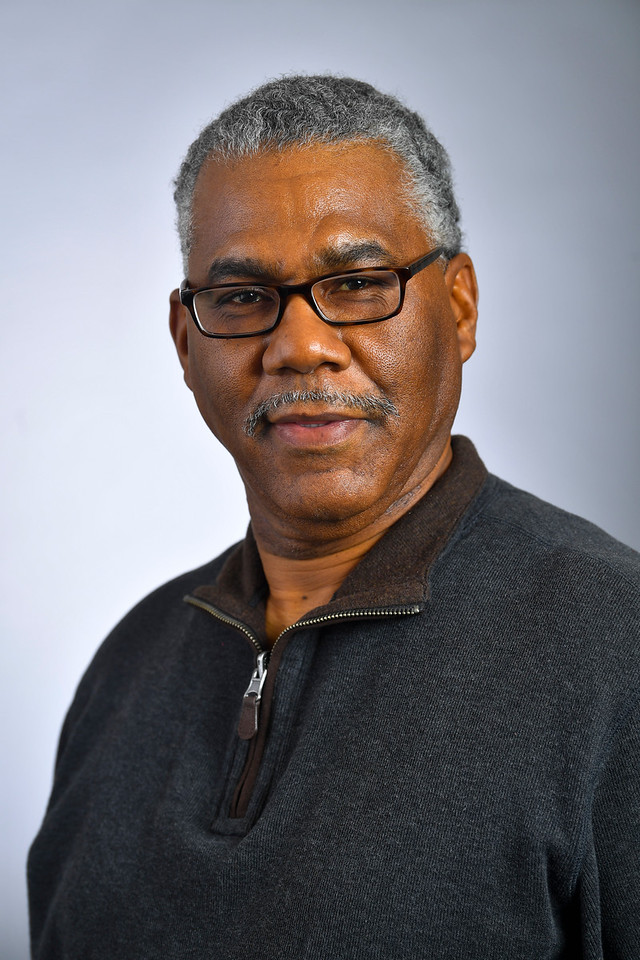
The ministers have also been recording daily prayers and devotionals and posting them to the church website, and members keep telling them how meaningful that is to them, said John Uldrick, minister of students and mission and a 2002 McAfee graduate.
“We’re a familiar voice,” he said. “We bring a little bit of normalcy into the chaos that they’re feeling right now.”
Lorenzo Heard, longtime pastor of Greater 2nd Mount Olive Baptist Church in Albany, Geogia, who is finishing his last semester at McAfee, said his church is now streaming its services on live TV and radio and holding virtual Bible study every Wednesday. In addition, the church continues to offer telephone prayer conferences with a 20-minute scripture lesson.
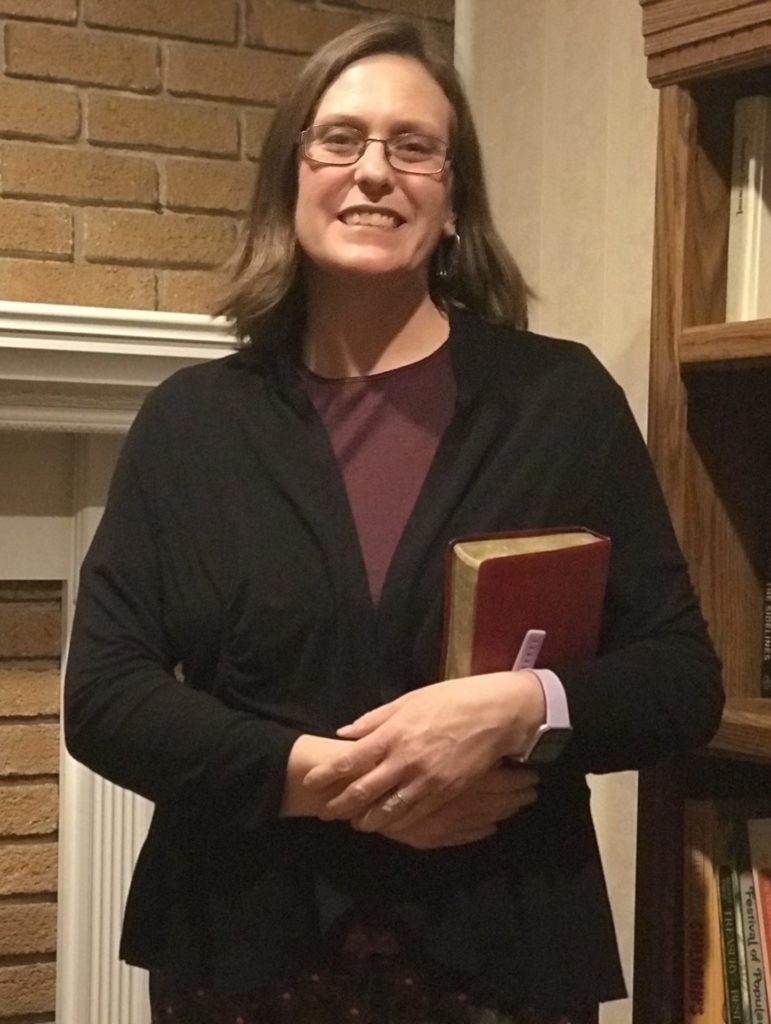
Members of First Baptist Church in Pendleton, S.C., can watch worship services on YouTube, listen to audio of the service online, or call in to listen to pre-recorded sermons, said senior pastor Jennifer Rygg, a 2007 McAfee graduate.
Rygg filmed her portions of the service from home the past couple weeks, but the music selections were recorded in the sanctuary. She said some church members find comfort in seeing the familiarity of the sanctuary, while others find reassurance in seeing her at home and modeling behavior that shows the situation is being taken seriously. The church has also been hosting online Bible study on Wednesday nights.
Children and youth ministries
Rygg said the youth at her church have been meeting online and participating in virtual lunch dates. Volunteers assembled Easter bags with worship materials, snacks and activities and delivered them to the doorsteps of kids in the children’s program.
Kristen Pope, a 2018 McAfee graduate, and Uldrick have been using Zoom video conferencing, texts and phone calls to keep in touch with the children and youth at First Baptist in Rome.
Pope, minister of faith development, has Zoom sessions with children in pre-K through second grades on Mondays and children in third through sixth grades on Wednesdays. The children’s parents often join in the meetings too, which she called a “hidden gift among all this.”
“We’re offering what we can, and I’m grateful for everyone who takes advantage. But I also have a lot of grace and understanding for people who can’t,” Pope said.
Pope said it’s a “constant call for creativity” as she looks for activities to keep the children engaged. To keep the kids’ attention, each video gathering is no longer than a half hour and includes games and activities like scavenger hunts, prayer requests and prayer.
Uldrick meets with the youth via Zoom on Wednesday evenings and for Sunday school on Sunday mornings. With teens, the biggest challenge is keeping them engaged when they’re so used to multitasking on their devices, he said.
The youth share “highs and lows” of their day, and Uldrick has led them in activities like talking about their favorite Disney characters, showing off their pets, and letting them ask him anything during “Ask John” time. One of Uldrick’s favorite activities he’s done with the youth is social distancing scavenger hunts, where they have 48 hours to submit a photo of their family with a number of very specific items.
Uldrick said he recently added a weekly check in with parents, which has been so beneficial that he plans to make it a permanent fixture of his ministry.
While video meetings teach a lesson, they also give kids a chance to see one another and bring back the normalcy of them just talking and sharing together, Pope said.
“These Zoom calls are some of the only calls I have on a regular basis that aren’t about coronavirus or stress. That time has become little golden nuggets for me,” Pope said. “It goes back to the familiar, to be able to see somebody that they know and trust. I feel like I’m facilitating space for what needs to happen.”
However, some things can’t be replicated. There’s been disappointment with the cancellation of youth camp, the graduating senior mission immersion trip in May and an international trip to the Bahamas, Uldrick said. And the uncertainty of the COVID-19 situation makes planning for the future nearly impossible.
“It’s almost like we haven’t been able to dream,” Uldrick said.
“What has been most exhausting is the work I can’t do yet,” Pope added. “We’re all having to reinvent the wheel, because there was no wheel to begin with.”
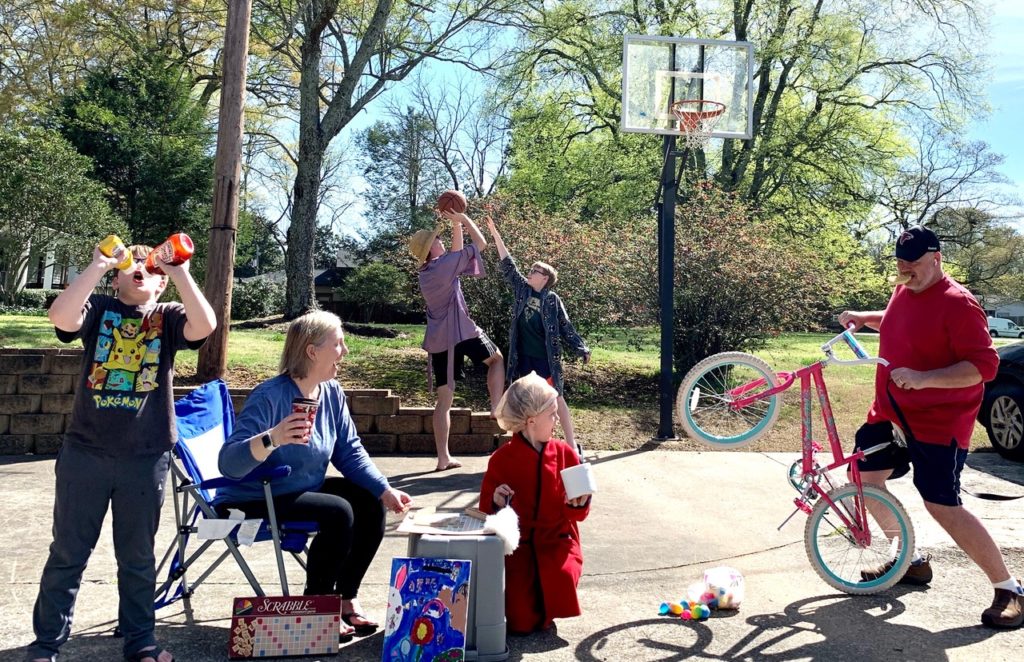
Community care
“The biggest challenge is helping people face and overcome the number of deaths and the number of people that we know, that we love, that we have relationships with,” Heard said.
Albany is considered a hotspot for the coronavirus pandemic, and Heard said at least 40 people he knew well have died, including three members of his own family. One person in his congregation buried their sister one week and father the next, and some members could not attend funeral services for loved ones because they were quarantined or because of restrictions on the number of attendees allowed.
Pastors haven’t been able to go to the hospital to visit people, hold their hands and pray with them, DuVall said.
“You can’t gather together and have everyone grieve together,” DuVall said. “All that separation and that disconnection physically has been a challenge for how we were taught to minister. We’re doing the best that we can virtually through Zoom calls and phone calls, but it still feels like there’s a big piece that’s missing.”
Members of Greater 2nd Mount Olive Baptist Church congregation have been checking on each other through cards, texts, phone calls and any other way they can. Heard said he drove by a member’s house the other day to make sure he was OK. He stayed in his car and they talked from a distance.
McAfee alumni serving the community in other roles are also finding ways to adapt to current circumstances.
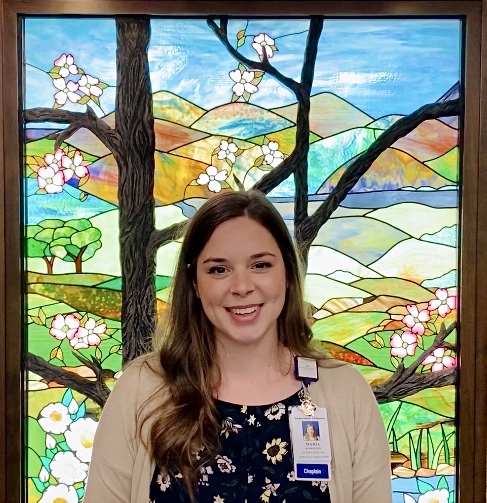
Maria Robertson, a 2018 graduate, provides spiritual guidance and emotional support to patients, families and employees at Northside Hospital Cherokee in Canton, Georgia, as a staff chaplain. Recently, she’s had to limit her movement throughout the hospital and her face-to-face care, although she still makes in-person visits to patients who have received a terminal diagnosis and to families of patients who have passed away as long as they are not suspected of having COVID-19.
She has had to find creative ways to be present with the patients, families and staff, including through tele-chaplaincy visits. In some cases, people have been willing to open up a little more during video and phone calls, Robertson said.
“Technology has been our friend, and it has allowed us to listen and have compassion in new ways,” she said.
Robertson said she was able to facilitate a FaceTime call between a dying patient and his whole family. It was very meaningful for everyone to be able to talk and pray together.
She has also been writing a lot of thank you notes to people working on the front lines of the pandemic and helping people practice healthy coping strategies.
Marcus Johnson, a 2014 McAfee graduate, is the founder of Atlanta-based nonprofit Your Soul Care Community, which creates spaces for adults and youth to experience spirituality and fellowship in nontraditional ways. The organization hosts “The Conversation” once a month, in which participants typically meet at someone’s home to talk about a variety of life topics, as well as community programming like family dinners and counseling and coaching sessions.
Johnson said “Zoom has become our best friend” for fellowship amid COVID-19. Team members have been meeting virtually over dinner, and community members meditated together through Zoom recently. They are checking on community members regularly through Facebook, text message and phone call. They’re also sharing community resources and information to help people stay connected and find assistance if they need it.
“It’s a unique challenge. I think now people are being inundated with virtual programming. There are so many opportunities out there,” he said.
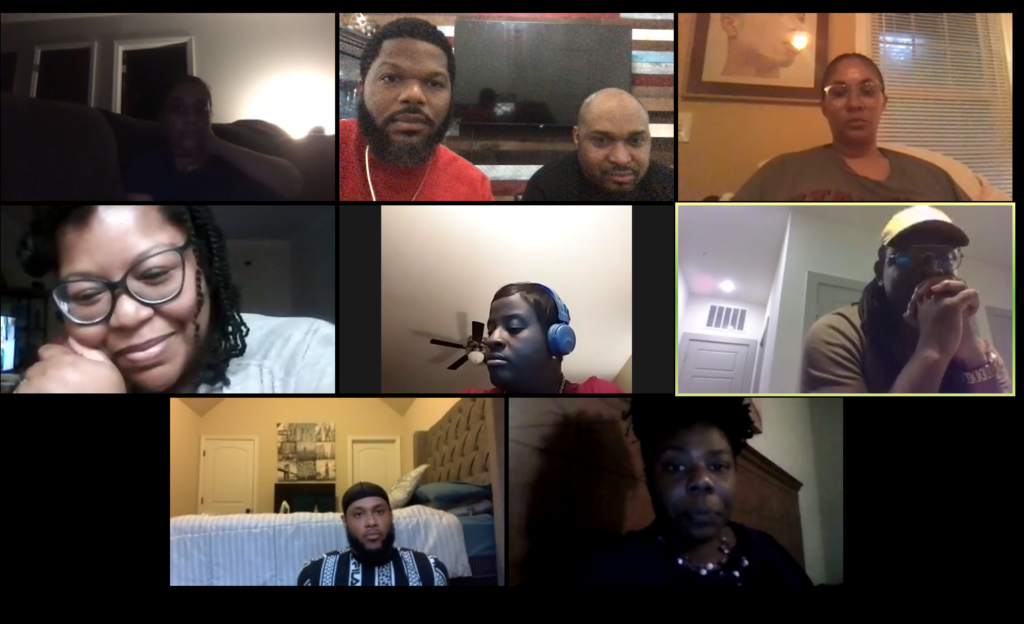
Keeping the faith
“It’s so easy to lose sight of our faith in the midst of a diagnosis, an illness or a challenge, but especially during a global pandemic,” Robertson said. “Our faith can get kind of rocked. I have the opportunity to provide support.”
Johnson has seen the challenges of today bring people together. They have never been through a pandemic like this before, and Your Soul Care Community is using narrative therapy to help them to cope, Johnson said. Community members are sharing their experiences about past trying times, and that helps give others strength to tackle the current situation.
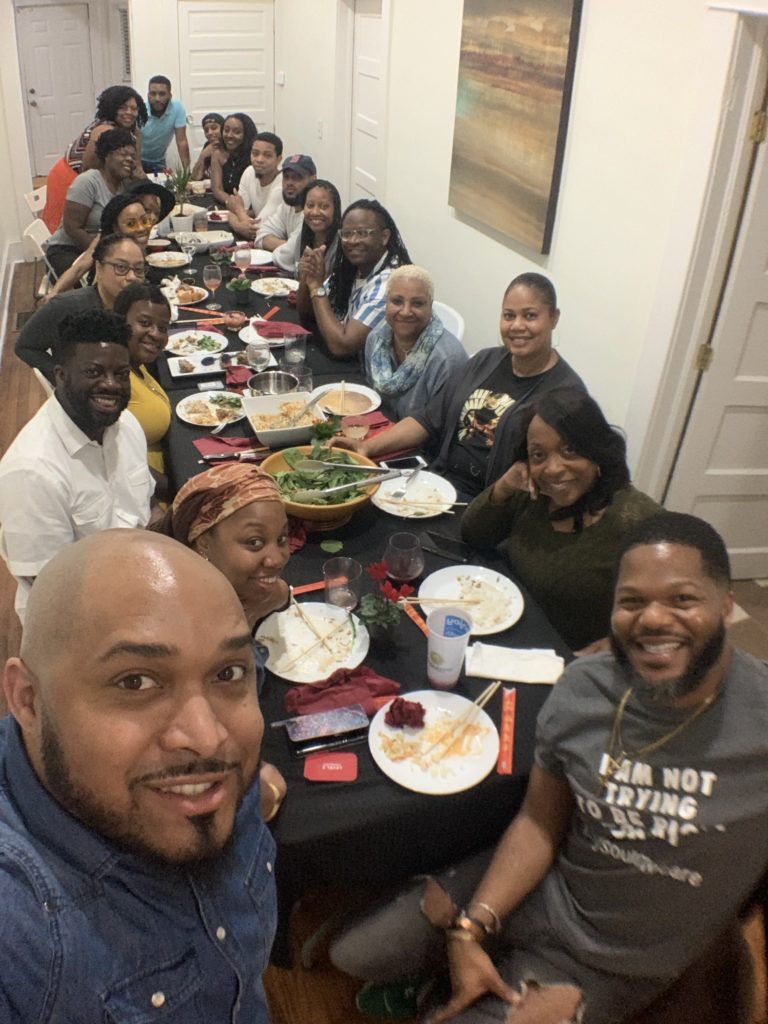
“Faith is a way to still feel connected … and something that continues to offer reassurance,” Rygg said. “In any time of crisis, there’s a sense of needing community, needing a sense of faith, needing to connect with God.”
The landscape of the world has changed forever and will never be the same, and faith is what is holding a lot of people up, Heard said.
“I think, more than anything, this season reminds us of the uncertainty of life and the need to live it to the fullest,” he said. “I challenge people in the future to hug a little longer, kiss a lot more and return calls a little quicker, because there’s no promise that people will be here tomorrow.”
DuVall said being part of such a healthy and encouraging church has made the pastoral team’s job easier during these difficult days. In addition, the experience of ministering remotely has shown them how technology can be incorporated in the future and used to better reach people who can’t attend in-person events.
“There are things we’re learning in this that are going to make us a better church because we value things differently,” DuVall said.









